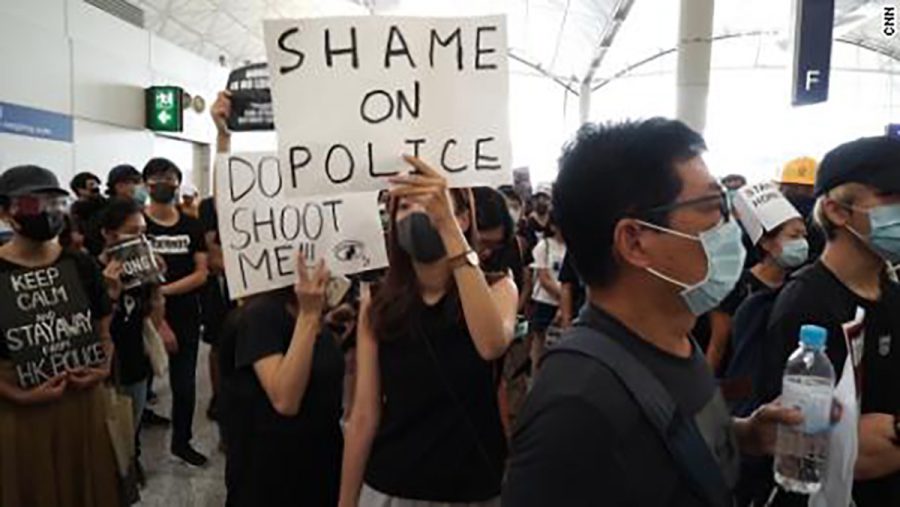Fighting for their rights
Hong Kong protests should be an international concern as well as a concern of the common people
Photo by Submitted
New extradition bill may be the next step into authoritarian control over Hong Kong.
Hong Kong has come to the forefront of international attention recently, and it’s something that I think should be given more attention on the local scale.
The reason why Hong Kong is going through this much civil unrest is due to a few factors, which may require some history to help explain.
To start, Hong Kong isn’t technically completely under the Chinese government’s control. This is due to its status as a British colony until 1997 when the United Kingdom gave it back to China.
However, there was a stipulation that Hong Kong would continue to run itself autonomously for another 50 years before returning under the mainland’s control in 2047.
A 2018 murder case linked to Taiwan has caused unrest as the Chinese government pushes for a bill that the people of Hong Kong feel infringe on their rights.
According to Aljazeera, it all started with Chan Tong-Kai of Hong Kong, who was wanted for the murder of his pregnant girlfriend, Poon Hiu-Wing, while they were on vacation in Taiwan.
Since the crime happened in Taiwan and was discovered after Chan returned to Hong Kong, officials said he could not be sent back to Taiwan for trial because there is no formal extradition agreement between those territories.
The Hong Kong government then proposed in 2019 to create an extradition agreement with Taiwan, however, this would also allow an extradition agreement with mainland China.
This is where the conflict comes in. The bill threatens to give China more power over Hong Kong, which is something the protesters fear.
As a semi-autonomous region, Hong Kong has been running itself under a system called “one country, two systems.”
While Hong Kong is considered a part of China in some instances, Hong Kong has certain democratic freedoms that China may not have as an authoritarian government. These include freedom of speech, freedom of the press and right to assembly.
While Hong Kong citizens have been fairly vocal against it, if the Hong Kong legislature votes on the bill it will most likely pass, Vox stated.
Hong Kongers don’t get to vote for their leader. The chief executive, currently Carrie Lam, is selected by China.
In addition, their Legislative Council has 70 seats. Of these 70 seats, those representatives who are pro-democracy occupy less than half of the seats. While Hong Kongers can vote for LegCo members, they are only allowed to vote for 40 of the 70 seats.
The other 30 seats are chosen by business communities of Hong Kong. These seats are typically Pro-China parties, as it is most beneficial to them to be in good relations to the mainland.
With all of this in mind, it’s not hard to see why the public has taken to the streets. Even the legal sector of Hong Kong has gotten involved in the protests.
As stated by Vox, the young people of China are the most involved, as they are the ones who will have to live through the change from an autonomous government based in democracy to an authoritarian government.
As someone who has grown up in a democratic-based government, I think that the young people of Hong Kong deserve our support and attention.
These people are my age, my peers that grew up in an environment similar to mine. When I think about what I would feel like in their circumstances, I get very scared.
To live most of my life with rights like freedom of speech and the freedom of the press only to have them ripped away as an established adult sounds like something straight out of a George Orwell novel.
With the rising violence and police brutality as the conflict goes on, I can only hope that gaining more international interest will give Hong Kong the power it needs to remain as the autonomous power it should be.
Spierings can be reached at [email protected].

Timothy Spierings is a fourth-year Spanish and journalism student. This is their eighth semester on The Spectator staff. They enjoy trying all types of new foods and listening to new music artists and are currently trying to learn the bass guitar.

